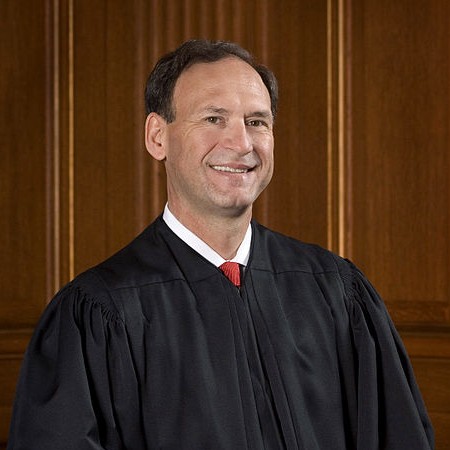Kagan and Alito are developing an 'amiably disputatious relationship'

Justice Elena Kagan.

Justice Samuel Alito.
Justices Elena Kagan and Samuel Alito Jr. sniped at each other in a Supreme Court decision last week, but don’t be fooled by the apparent animosity.
The two justices “appear to be developing an amiably disputatious relationship,” Slate reports. Like Justice Ruth Bader Ginsburg and the late Justice Antonin Scalia, Kagan and Alito appear to have developed a camaraderie, even as they oppose each on ideological points.
Because of the Supreme Court seating chart, Kagan and Alito sit next to each other during oral arguments, and they often whisper to each other.
And they seem to enjoy making each other laugh, according to the article.
In Cooper v. Harris, Kagan wrote the majority opinion (PDF) striking down two redrawn North Carolina congressional districts as unconstitutional racial gerrymanders.
In his dissent, Alito said Kagan’s opinion had ignored that the districts were redrawn with a political, rather than racial, aim. “The majority’s analysis is like ‘Hamlet’ without the prince,” Alito wrote.
Kagan answered Alito’s criticism in a footnote. First, she criticized Alito for a one-sided account of the case that tracked the account of a state witness. “The dissent could just have block-quoted that portion of the transcript and saved itself a fair bit of trouble,” she wrote.
She also answered Alito’s nod to Shakespeare with her own literary reference. “Imagine (to update the dissent’s theatrical reference) ‘Inherit the Wind’ retold solely from the perspective of William Jennings Bryan, with nary a thought given to the competing viewpoint of Clarence Darrow,” she wrote.
Alito responded to Kagan in his own footnote. “The majority concedes that this is a thoroughly two-sided case,’” he wrote, “yet the majority’s opinion is thoroughly one sided.” Rather than “meaningfully describe” the state’s political explanation, he wrote, the majority opinion “tries to change the subject, accusing me of treating the state’s account as essentially uncontested. … This is a hollow accusation.”
Hat tip to How Appealing.



